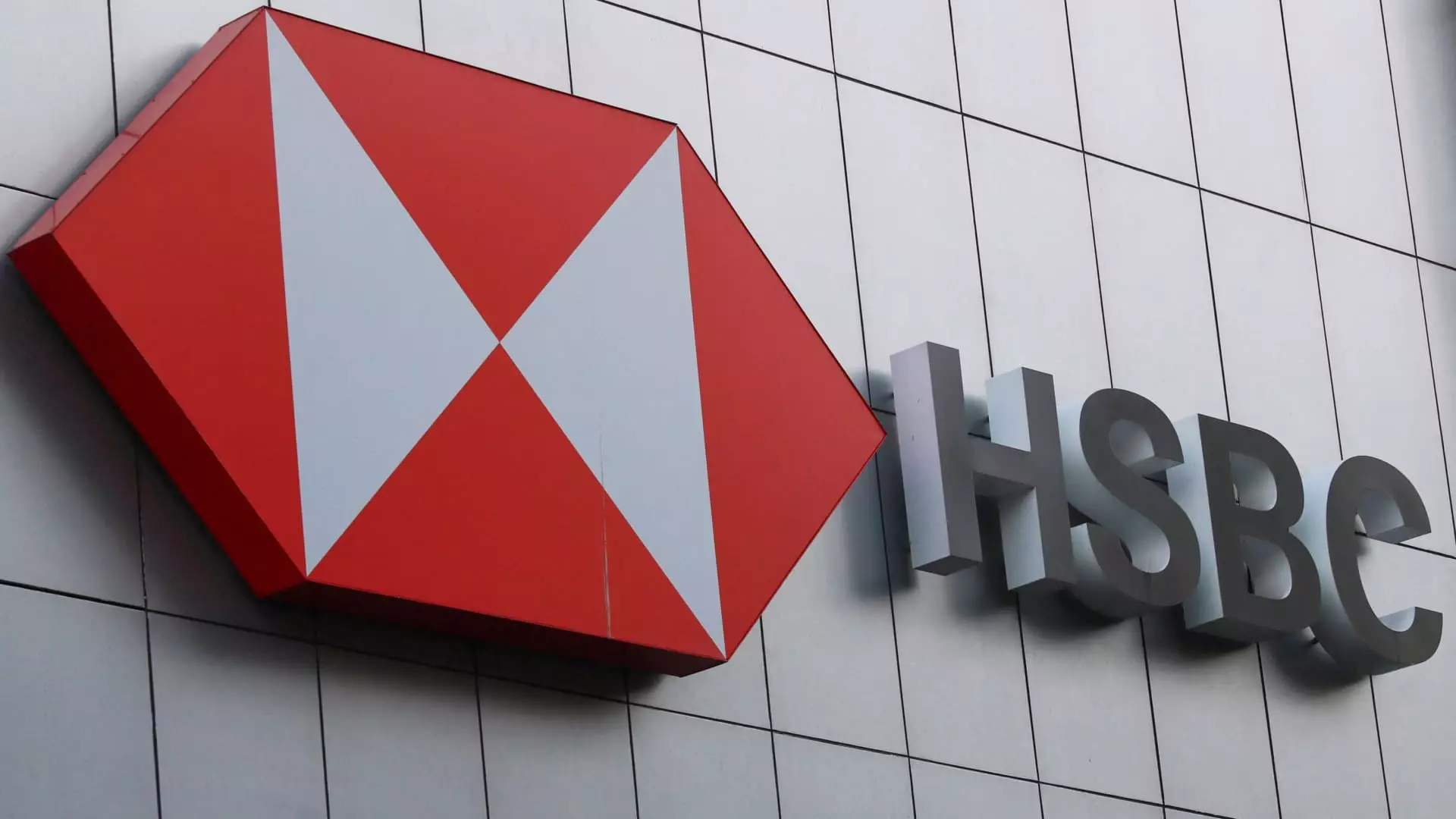HSBC, Europe’s largest banking institution, reported its annual financial results that portrayed a mixed picture on Wednesday. The bank’s pre-tax profit saw a modest increase of 6.5%, reaching $32.31 billion, resisting the downward trend suggested by its revenue figures which slipped to $65.85 billion from $66.1 billion in the previous year. The profit margin narrowly outpaced the internal consensus, falling short of market expectations, with analysts from LSEG predicting a pre-tax profit of $32.63 billion. This indicates a subtle tension within the financial community regarding HSBC’s performance, highlighting the delicate balance the bank must maintain to satisfy both investors and market analysts.
A significant contributor to the bank’s profit rise involved the strategic exit from the Canadian banking business, a decision that allowed HSBC to streamline its operations and improve its financial outlook in an otherwise challenging market environment. However, the fourth quarter painted a more challenging narrative, where the pre-tax profit surged to $2.3 billion—almost double that of the same quarter the previous year—mainly due to the previous year’s impairment charge of $3 billion. This suggests that while short-term gains are apparent, there are long-term concerns over previous missteps that require evaluation and recalibration of strategic decisions.
In line with market expectations, HSBC announced a share buyback program worth up to $2 billion, set to conclude by the end of Q1 2025. This gesture reflects a commitment to returning value to shareholders and bolstering confidence in the bank’s financial strategy moving forward. Alongside this, HSBC aims to execute cost reductions amounting to $1.5 billion annually by 2026, with analyst Michael Makdad from Morningstar lauding this proactive measure. Such initiatives signify HSBC’s resolve to adapt to evolving market conditions and address operational efficiencies amidst uncertain global economic indicators.
The recent financial results are notably the first reported under the leadership of Georges Elhedery, who took over the CEO mantle following Noel Quinn’s retirement last July. Elhedery’s approach involves a significant reorganization of HSBC into four distinctive business segments—Eastern and Western markets—presumably designed to clarify operational focus and enhance responsiveness to regional economic dynamics. This restructuring effort is anticipated to yield cost reductions of approximately $300 million by 2025, affirming HSBC’s intent to refine its operational framework for improved agility.
However, the market response to the earnings release was muted, as evidenced by a 0.29% dip in the Hong Kong-listed shares of the bank. The recent layoffs of approximately 40 investment bankers in Hong Kong underscore the volatility and challenges present within the banking sector, particularly affecting areas such as M&A, consumer and real estate sectors. With strategic foresight, HSBC appears to be navigating its path through tumultuous waters, but will need to foster a robust strategy moving forward to maintain investor confidence and operational effectiveness in an increasingly competitive global marketplace.

Leave a Reply